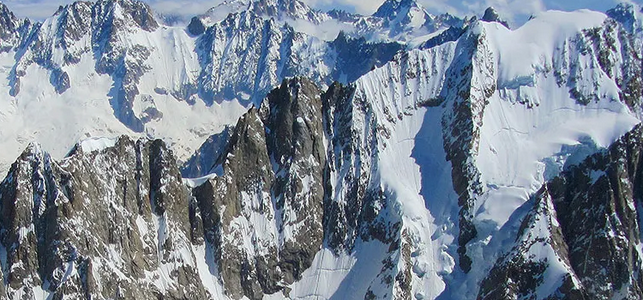Mont Blanc Shrinks
Mont Blanc, the iconic pinnacle of the Alps, has undergone a notable decrease in elevation, dropping by 2.2 meters since 2021. This unexpected reduction in height, attributed to a range of factors, has raised concerns about the mountain’s changing state and its potential implications.
Shrinking Mont Blanc
Mont Blanc, the tallest mountain in the Alps, has seen its height decrease by 2.2 meters since 2021. A team of surveyors from the Haute-Savoie regional administration, assisted by drones, conducted measurements to determine this change. The new official height of Mont Blanc, as per the latest measurements, is 4,805.59 meters. This marks the lowest recorded height in recent memory, with a considerable drop from the previous reading of 4,807.81 meters taken two years ago.
Factors Behind the Height Reduction
The year 2023 is described by researchers as a “somewhat exceptional year” for Mont Blanc, noting that it had lost approximately “3,500 cubic meters of ice and snow compared to the volume measured in 2021, roughly equivalent to the volume of an Olympic swimming pool.” This loss is considered significant when compared to measurements from previous years.
Climate and Glaciology Experts’ Perspective
Climate and glaciology experts have cautioned against immediately linking the decline in Mont Blanc’s summit height to broader glacial ice loss in the Alps. While there is a slight downward trend observed since 2001, experts emphasize that it takes around 50 years of measurements to draw conclusions about possible global warming at this altitude of 4,800 meters.
Ablation and Summit Dynamics
Luc Moreau, a glaciologist from Chamonix, highlighted the role of wind and weather on Mont Blanc’s summit. He explained a process called ablation, in which wind accelerates evaporation, contributing to variations in the summit’s ice and snow cover. Mont Blanc’s summit is characterized by polar-like climatic conditions, making it less representative of global climate warming trends.
The Future of Mont Blanc
The 2.2-meter decline in Mont Blanc’s height could be influenced by lower summer precipitation, according to experts. Jean des Garets, chief geometer in the Haute-Savoie department of southeastern France, suggested that the mountain’s height may rebound when measured again in two years.
Researchers have been monitoring Mont Blanc’s height every two years since 2001 to gather data on the impact of climate change on the Alps. The region has experienced the loss of a significant portion of its glaciers and permafrost, underlining the broader environmental changes in the area.
Month: Current Affairs - October, 2023
Category: Environment Current Affairs






